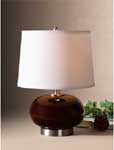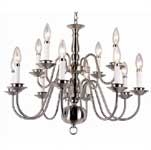
Doug's Soapbox
There is something about the human condition that makes us insist that bad things are good, good things bad, and that we understand all the details surrounding an issue. Here are some examples.
Everyone is Green
Green is popular, and manufacturers have jumped on the band wagon. It should come as no surprise that consumers who value the green concept, need to be wary of hyped up advertising claims. Here are a few of my favorites:
Coal is Carbon Neutral: Walker Machinery is a supplier of equipment for the Coal Industry. For a while, they had an billboard advertising campaign that claiming that Coal is carbon neutral. Hello! Coal IS carbon. There is no way to burn coal and not put all that carbon into the atmosphere as CO2.
Garbage Disposers: There is an ongoing feud between the manufactures of garbage disposers (or disposals) and the sewage and water treatment folks. The manufacturers claim that sending your garbage to the sewage treatment plant keeps it out of the landfill, and the water treatment experts point out that disposers use more water (an expensive and limited resource in many areas), and often the sewage treatment plants have to separate the solids out of their sewage, and truck them to the landfill anyway. There are also issues having to do with methane production and transportation expense. My personal take on this is that the disposer is handy for getting the junk out of your sink when you are cleaning it, but when I have a handful of potato peelings to dispose of, they go in the trash (or compost).
Dimmers: Lutron is the largest manufacturer of dimmers in the USA. They make a large variety of quality products, and I use them whenever I can, but I take issue with some of their marketing claims. Much of their promotional literature deals with the energy savings of using their products. Initially, it seems to make sense that reducing the brightness of your lights will save energy, and it does, but for a variety of technical reasons, the brightness of the light decreases faster than the energy savings. Lutron's own optimistic information points out that decreasing the brightness by 50%, will reduce your electricity usage by only 40%. Dimmers are a great solution if you sometimes want full brightness, and sometimes want reduced brightness, but if you leave your dimmer at the same position all the time, it is more efficient to replace it with a switch, and select the appropriate wattage light bulbs. One of my favorite "silly" products is Lutron's line of eco-dim dimmers. The only difference between their standard dimmers, and their eco-dim dimmers is that the eco-dim product electrically prevents you from setting it all the way on to full brightness. For this limitation, they claim 15% energy savings, and charge an additional 30%.
--------------------------------------------------------------------------
Diesel Cars
My sad corollary to "Everyone is Green" is "Americans don't care about the environment." More specifically, they don't care, unless it also saves them money, and sometimes not even then. Here is a case in point.
Before I bought my new vehicle, I researched diesel vans for months. After much study, I went with my second choice, the diesel Mercedes Sprinter, My first choice was the Chrysler Town and Country diesel. Although, this light truck is manufactured right here in North America, and gets better fuel mileage than the larger Sprinter, you and I cannot buy one. They are only for sale in the rest of the world. Why? It seems to be a complicated combination of our EPA requirements, the American love of excessive power, and the perception that soccer moms turn up their noses at the sound and smell of diesel engines. The domestic gasoline model gets 24 MPG whereas the diesel version gets better than 35 MPG. Go figure. See this eye opening link: 35 MPG: Why wait until 2020?
----------------------------------------------------------------------------
Lawn Tools
Why do the the manufacturers of rakes, hoes, and hedge shears, continue to make them with earth tone handles? Any idiot who has ever tried to find his tools in an overgrown garden knows they should be fluorescent orange or pink. Could this be a strategy to sell more tools?
----------------------------------------------------------------------------
Lamp Styles
We have had electric lighting in our homes for 130 years. Why then do our lamps still look light gas or kerosene lamps, or like candles? The Art Deco period brought us some relief, and then we just went back again to the same designs. Could it be we are nostalgic for the good ole days when we illuminated our wooden houses with fire?


